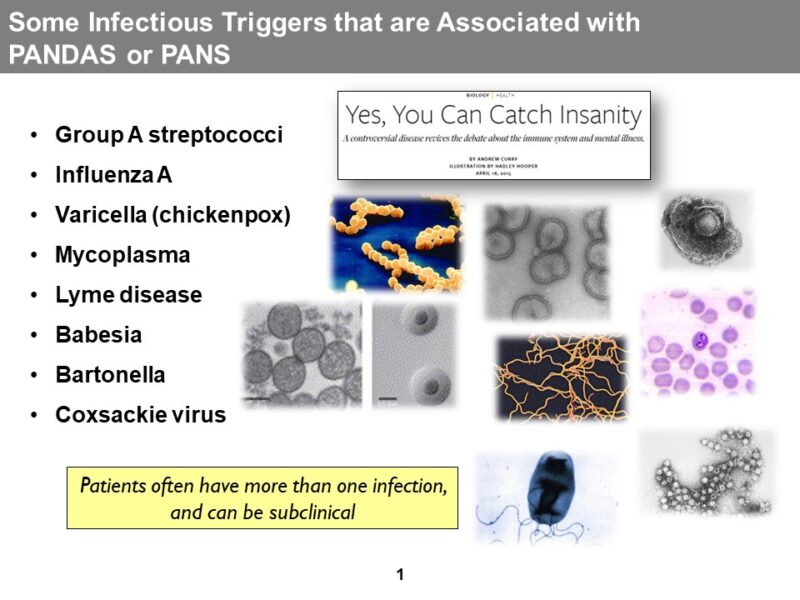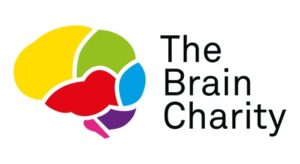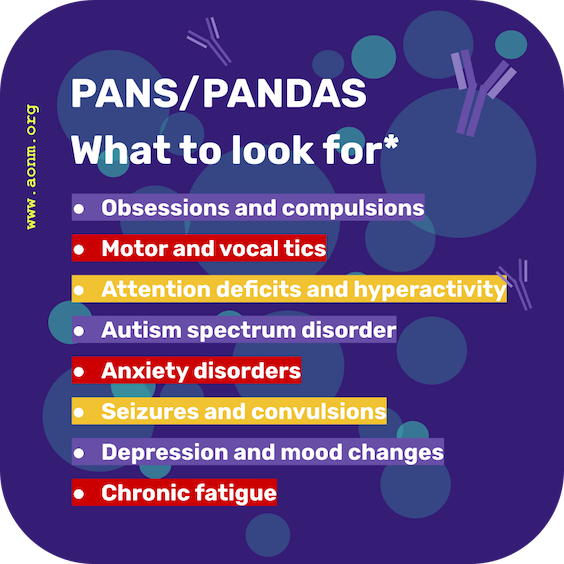PANS/PANDAS: A Simple Overview
Published on 24 April, 2023
Paediatric Acute-Onset Neuropsychiatric Syndrome (PANS) and Paediatric Autoimmune Neuropsychiatric Disorders Associated with Streptococcal Infections (PANDAS) are conditions that affect both children and adults, and can cause sudden and dramatic behavioural changes.
PANS/PANDAS is unfortunately not yet recognised by all medical professionals but there are many Advocates and Charities working hard to change this.
PANS/PANDAS can cause a range of symptoms, including:
- Sudden onset of obsessive-compulsive disorder (OCD) or tic disorder
- Sudden deterioration in school performance
- Anxiety and/or depression
- Changes in handwriting or maths skills
- Sensitivity to food, light, and sound
- Hyperactivity and impulsivity
- Aggression and irritability
- Sleep disturbances such as insomnia
- Regression in developmental milestones
- Urinary problems including enuresis (bed wetting)
- In approximately 25% of cases there have been reports of psychosis and/or hallucinations.
These symptoms often appear suddenly and can be severe, leading to significant impairment in the child’s daily life.
What Can Cause PANS/PANDAS?
In the case of PANDAS, the infection is typically caused by the Streptococcus bacteria, which is the same bacteria that causes strep throat. When another infection is involved, often at the same time as strep, the condition is termed PANS, though there are other terms for it too (“paediatric” is misleading in both names, as the condition is not confined to children). The main cause is an autoimmune response triggered by a bacterial or viral infection.

The immune system, which is designed to protect the body from infection, can sometimes mistakenly attack the brain, causing inflammation and damage. This can lead to the symptoms associated with PANS/PANDAS.
Diagnosis and Treatment of PANS/PANDAS
Diagnosing PANS/PANDAS can be challenging, as there is no definitive test for the condition. However, doctors will typically look for a combination of symptoms and medical history to make a diagnosis. There is however a laboratory in Oklahoma, US – Moleculera Labs who are pioneering in developing and offering advanced testing services that assist clinicians in identifying whether an individual’s neurological and/or other symptoms could be caused by an autoimmune dysfunction.
The Academy of Nutritional Medicine is a partner of Moleculera Laboratory.
Very often symptoms of PANS/PANDAS have been found to be caused by a treatable autoimmune condition, triggered by common infections. A unique test for this offered by Moleculera Labs is the Cunningham Panel™. This panel tests for five markers that can help identify the level of autoimmune antibodies and their ability to trigger neurological behaviour.
The five markers that the Cunningham Panel looks at are:

If one or more of these five assay values is elevated, it may indicate a clinically significant autoimmune neurological condition such as PANS or PANDAS. These are conditions in which the patient’s autoantibodies cross-react and are directed against selected neuronal targets in the brain which are involved in neuropsychiatric and/or motor functions.
There is no one-size-fits-all treatment for PANS/PANDAS, and complementary therapies may be considered as part of a comprehensive treatment plan and always under supervision from a Practitioner or Doctor.
Here are some complementary therapies that have been reported to help some patients:
- Nutritional Supplements: Supplements such as Omega-3 fatty acids, vitamin D, and probiotics have been suggested to help support the immune system and reduce inflammation. We will address this in much more depth in future Blog Posts and in Upcoming Webinars.
- Herbal Remedies: Specific remedies are available from dedicated companies that have been researching PANS/PANDAS for many years, and therapists familiar with these conditions will know them.
- Chiropractic Care: Chiropractic care involves the manipulation of the spine to promote healing and balance in the body. It may be helpful in reducing inflammation and improving overall immune function.
- Mind-Body Therapies: Mind-body therapies such as yoga and meditation may help reduce stress and anxiety, improve sleep, and promote overall well-being. (This is also very necessary for parents and caregivers!).
The best is an integrative approach, taking the best from conventional and complementary therapy – an approach that AONM is dedicated to in everything it does.
Final Thoughts
PANS/PANDAS is a complex and sometimes distressing condition, not just for the child or adult but also for those around them, particularly their caregivers. Finding a doctor who understands their needs is crucial and many parents and caregivers become experts themselves on the condition in order to help the patient as much as is humanly possible. Thankfully there are well established support groups and charities that we will link to. If you need help and/or support, please do look at the resources listed below.
While there is still much to be learned about PANS/PANDAS, early diagnosis and treatment can help to manage symptoms and improve outcomes. If you are concerned that your child may be affected by PANS/PANDAS, be sure to speak with a healthcare provider for guidance and support. If you are not able to find a healthcare provider that understands either condition, please do not hesitate to contact us and we/they will endeavour to help guide you.
Helpful Resources:



For more information and articles on PANS/PANDAS see HERE
Both AONM and Moleculera Labs have information on their websites about the Cunningham Panel™ Test, this information can be found in the links below:
https://www.moleculeralabs.com/cunningham-panel-pandas-pans-testing/
https//www.aonm.org/cunninghampaneltests/

Professor Shimasaki’s Presentation from Wednesday 3rd May can be viewed HERE
We also have our PANS/PANDAS Webinar Series on our website featuring experts such as Professor Craig Shimasaki, Dr. Jodie Dashore and Dr. Sam Yanuck. You can find these videos and more both on our Website and also on our YouTube Channel where you will find many videos from experts in their field on a multitude of health subjects.
If you have any questions regarding the Cunningham Panel™ Test, please email info@aonm.org with subject heading ‘Cunningham Panel™ Query’. If you would like to subscribe to our newsletter and mailing list for any promotional offers and events such as live webinars and training for Practitioners, please send us your details via our Contact Page



